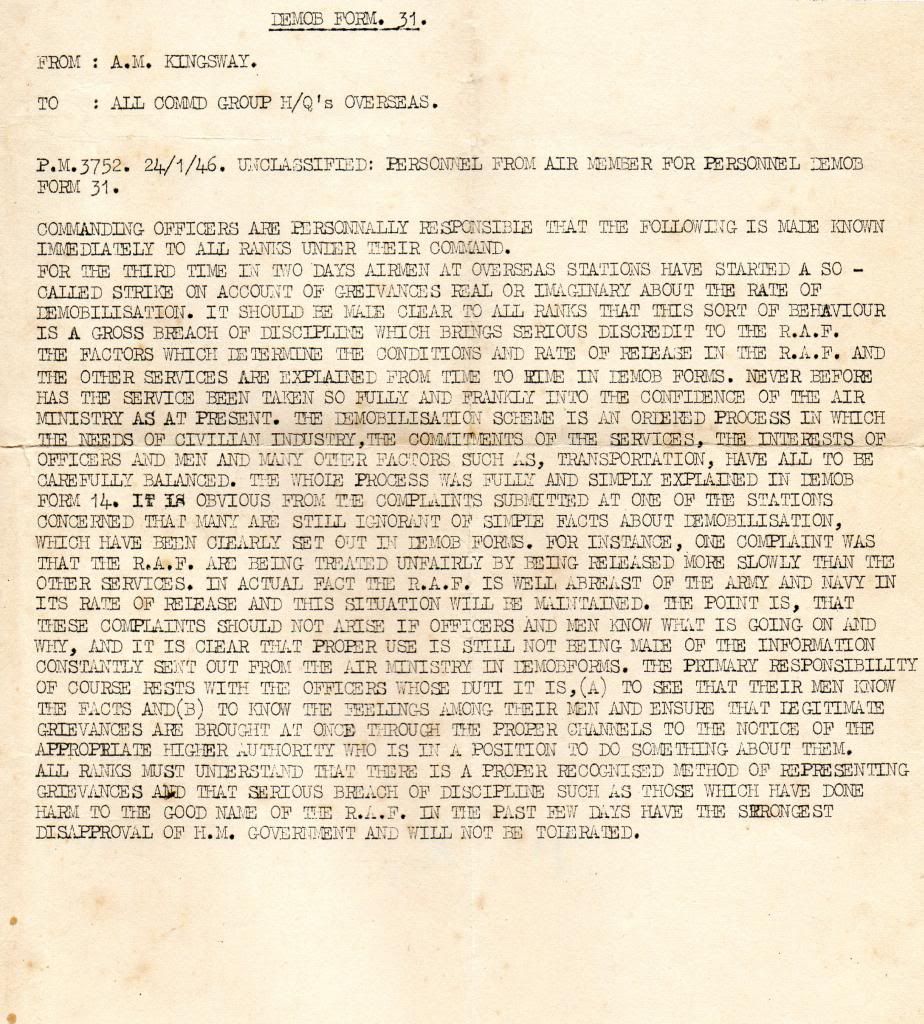B-24J
One of the Regulars
- Messages
- 295
- Location
- Pennsylvania,USA
I found this in an old manual I purchased.

You may recall the "Band of Brothers" episode "Points" where the US Paratroopers were being sent home using a point system.
I had not thought about the our Allies like the RAF having problems with the demobilization process at the end of WW2.
John

You may recall the "Band of Brothers" episode "Points" where the US Paratroopers were being sent home using a point system.
I had not thought about the our Allies like the RAF having problems with the demobilization process at the end of WW2.
John


